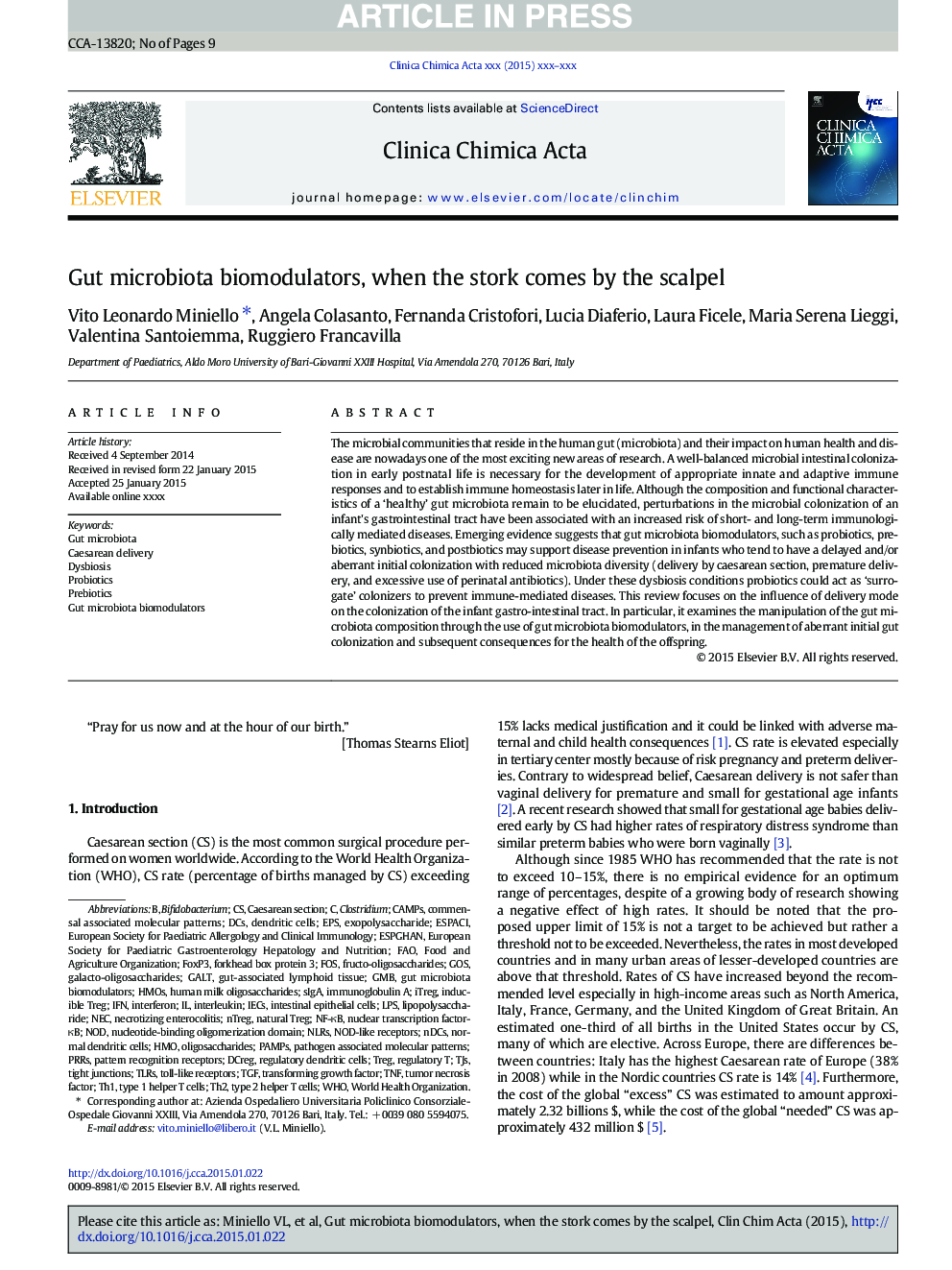| Article ID | Journal | Published Year | Pages | File Type |
|---|---|---|---|---|
| 10817285 | Clinica Chimica Acta | 2015 | 9 Pages |
Abstract
The microbial communities that reside in the human gut (microbiota) and their impact on human health and disease are nowadays one of the most exciting new areas of research. A well-balanced microbial intestinal colonization in early postnatal life is necessary for the development of appropriate innate and adaptive immune responses and to establish immune homeostasis later in life. Although the composition and functional characteristics of a 'healthy' gut microbiota remain to be elucidated, perturbations in the microbial colonization of an infant's gastrointestinal tract have been associated with an increased risk of short- and long-term immunologically mediated diseases. Emerging evidence suggests that gut microbiota biomodulators, such as probiotics, prebiotics, synbiotics, and postbiotics may support disease prevention in infants who tend to have a delayed and/or aberrant initial colonization with reduced microbiota diversity (delivery by caesarean section, premature delivery, and excessive use of perinatal antibiotics). Under these dysbiosis conditions probiotics could act as 'surrogate' colonizers to prevent immune-mediated diseases. This review focuses on the influence of delivery mode on the colonization of the infant gastro-intestinal tract. In particular, it examines the manipulation of the gut microbiota composition through the use of gut microbiota biomodulators, in the management of aberrant initial gut colonization and subsequent consequences for the health of the offspring.
Keywords
Th2GALTGOSDCsTGFNECTregESPGHANPRRsiTregTh1FOSnTregNDCsType 1 helper T cellsType 2 helper T cellsNLRsTNFHMOsDCregGMBNF-κBHMOEPSFOXP3LPSPAMPsNODsIgATJsTLRstight junctionsCampsOligosaccharidesHuman milk oligosaccharidesNecrotizing enterocolitisExopolysaccharideimmunoglobulin AinterferonIFNinterleukingut-associated lymphoid tissuecaesarean sectionBifidobacteriumtransforming growth factornucleotide-binding oligomerization domainDysbiosiscaesarean deliveryWorld Health OrganizationFood and Agriculture OrganizationDendritic cellsIntestinal epithelial cellsRegulatory dendritic cellsFAONuclear transcription factor-κBtumor necrosis factorfructo-oligosaccharideslipopolysaccharideRegulatory T Gut microbiotapathogen associated molecular patternsProbioticsforkhead box protein 3PrebioticsClostridiumIECsWHOGalacto-oligosaccharidesNOD-like receptorspattern recognition receptorsToll-like receptors
Related Topics
Life Sciences
Biochemistry, Genetics and Molecular Biology
Biochemistry
Authors
Vito Leonardo Miniello, Angela Colasanto, Fernanda Cristofori, Lucia Diaferio, Laura Ficele, Maria Serena Lieggi, Valentina Santoiemma, Ruggiero Francavilla,
